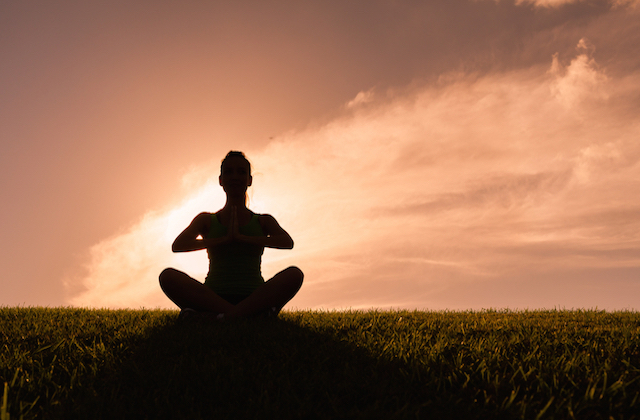
“When words are both true and kind, they can change our world.” ~Buddha
It’s sometimes difficult to give the principles we wish to uphold practical expression in our lives. That’s because we don’t know what they truly look like in the real world.
A good way to overcome this obstacle is to incorporate mindful expressions into your daily vocabulary. This will help you become aware of your principles and apply them to everyday challenges.
I find the following five expressions extremely valuable in adding more meaning and mindfulness into my life, and I hope they will have a similar effect on yours.
1. “I don’t know.”
Contrary to popular belief, being “enlightened” doesn’t mean that you know everything there is to know about the world, and it certainly doesn’t mean that you pretend to know everything.
Ignorance isn’t a weakness. It’s a fact of life.
Choosing to ignore your ignorance will only add to your ignorance, as it will prevent you from embracing learning opportunities.
We can feel shy to admit that we don’t know, especially when everyone else seems to know. But pretending to know only masks the fact that we don’t.
Enlightened living isn’t about pretending; it’s about accepting reality.
If we don’t know then we don’t know, and there’s no use in hiding this fact.
When it comes to learning, it’s essential that we focus on the “half empty” portion of the cup so we can develop the desire to take in more knowledge rather than feeling satisfied with what we already know.
You may even want to consider the cup as being completely empty so that you can see a subject with fresh eyes, without basing your opinions on your existing assumptions.
That way you become more open to accepting a radically new outlook, without resisting it because it’s wrong, based on your current views.
2. “I was wrong.”
One of the biggest impediments to our happiness is identification with our own opinions and refusing to accept that they might be wrong.
We shut ourselves off from new information, avoid making any observations that conflict with our views, and ignore what others want to tell us, simply because we fear that our beliefs will be challenged.
So what if we’re wrong?
As human beings we’re bound to make mistakes in understanding the world. That’s part of our learning journey, and it’s nothing to feel ashamed about.
Being able to admit when we are wrong will help diffuse a great deal of tension in dealing with others, as we’ll no longer feel the need to take a defensive stance to protect our opinions.
3. “I made a mistake.”
The amount of time, effort, and energy we spend coming up with excuses and rationalizations for our mistakes can be better spent on moving our lives forward.
You may have noticed that most of our struggles in life don’t come from the problems we face but the fact that we refuse to face them. Why? Because we’re not willing to admit a past mistake, and so we resort to evasion or blaming others for our own mistakes.
By accepting that you’ve made a mistake and acknowledging it verbally, you free yourself from the need to come up with excuses or shift the blame to avoid taking responsibility.
I should stress that you make mistakes. You’re not the mistakes you make, and you shouldn’t identify with these mistakes.
See them as poor decisions that you can learn from for the future and not as character traits that you will continue to possess for the rest of your life.
4. “It happens.”
We feel frustration when our expectations aren’t met, and we struggle to make sense of why things happened the way they happened.
To diffuse that frustration and to accept reality as it is, you can remind yourself that what happens happens, and there’s no need to fight it.
You certainly don’t need to arrive at an answer for “why did this happen to me?” before you are able to move on. Some things just happen, to good people and bad people.
Beauty and serenity come with accepting reality the way it is, without demanding that it conform to our own wishes and whims.
Once we become more accepting of reality, we can become more effective in dealing with the challenges we face in life.
5. “How can I help?”
There’s a difference between asking “Can I help you?” and asking “How can I help?”
The first infuses your ability (and willingness) to help with doubt. It supposes that you can either help or can’t help, and is often used to resist the opportunities to help others.
But the second question begins with the assumption that you can help. All that matters is how you can help. It’s definitely more welcoming, and allows you to exercise a greater level of creativity in finding ways to help others, or in advancing your own life.
Sprinkle your life with these mindful expressions and you’ll find it much easier to put your principles into practice.
What other expressions can you use to help you live more mindfully?Tired of feeling stuck? Let go of the past and create a life you love with the BayArt programs!
Did you enjoy this post? Please share the wisdom :)